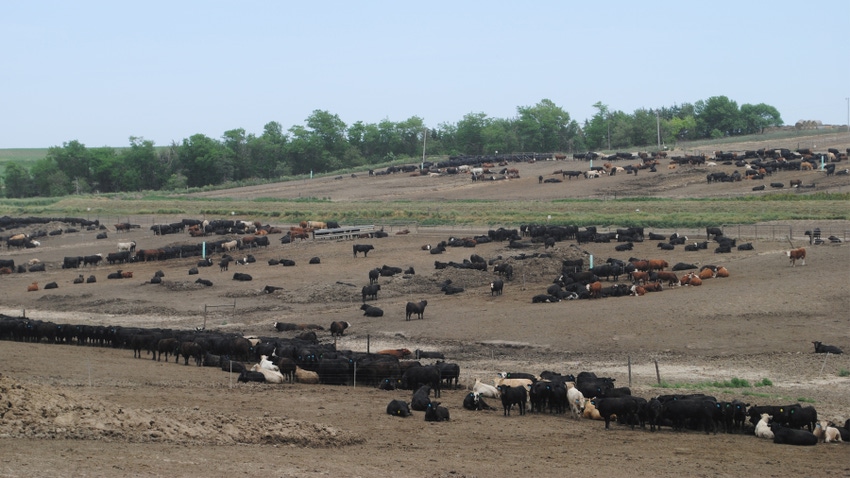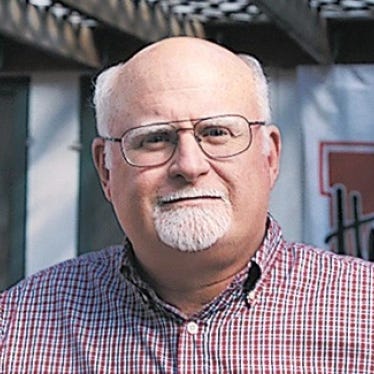
After Kacie Leonard graduated from Middle Tennessee State University last year, she never expected to be working at a Nebraska feedlot in Lexington.
But the animal science graduate is happy with her job as cattle foreman at the Roberts Cattle Co. feedlot, and she credits the Timmerman Feedlot Management Internship program at the University of Nebraska-Lincoln for getting her there.
Leonard says she met UNL students and staff at a National Cattlemen’s Beef Association convention in 2023, where she learned about the internship program.
Begun in 1988, the program trains from five to 10 interns a year who, after they’ve graduated with their undergraduate degrees, spend about six weeks in classroom discussions and at the UNL Beef Research Feedlot near Mead before heading to a host feedlot in the second phase of the internship.
The classroom sessions begin near the end of May each year.
Valuable experience
“Kacie is helping fill a growing need by feedlots for experienced employees,” says Jessica Sperber, Nebraska Extension feedlot specialist and internship director. “We get calls from two to three feedyards a week seeking qualified employees. Our goal is to create middle managers who can move up the ladder from there.”
Galen Erickson and Jim MacDonald, Nebraska Extension beef specialists, are also part of the program. They, along with Sperber, conduct the classroom sessions and work with the students at the UNL research feedlot.
Students learn about feedlot management, nutrition, animal health, economics and personnel management, all in preparation for their official internship feedyard. Tours also are part of this first phase, including at ethanol plants, feedyards and other ag industries.
The second portion of the program involves a five-month internship at a commercial feedyard, from July to December. In a third and final portion, students return to Lincoln for two weeks to network with each other and staff about their experiences.
Tuition is covered
There is no cost to participate in the program, with tuition paid by the Nebraska Cattlemen and from the Timmerman Endowment Fund. The salary during the commercial feedyard phase is agreed upon by the intern and feedyard.
The internship program was boosted thanks to a gift from Norman and Sharon Timmerman of Indianola, Neb. At the time, this represented the single largest private donation ever received for this specialized ag program through the UNL College of Agricultural Sciences and Natural Resources and its Department of Animal Science, creating a permanent endowment at the UNL Foundation.
An animal science degree is not required to get into the internship. “Any major in the agricultural area will suffice,” Sperber says.
Historically, most interns have come from Nebraska, but in recent years there have been more from out of state, Sperber says. Many of them have been offered a full-time position at their feedyard when the internship ends, she adds.
Sperber says a big advantage for those participating is the “caliber of the feedyards involved,” including those in Nebraska, Kansas, Texas and South Dakota. And those feedyards believe in the program benefits, she adds.
“The program was phenomenal,” Leonard says. “I didn’t have much experience with feedlot operations. But the internship helped me get my feet wet and prepared me for this industry.”
Learn more at animalscience.unl.edu.
McCabe is a retired longtime editor of Nebraska Farmer. He writes from Lincoln, Neb.
About the Author(s)
You May Also Like






